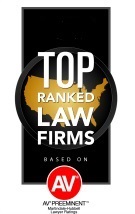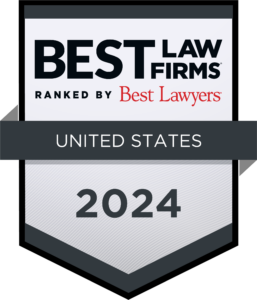Employment Law Update – Fall 2019
Solomon Ward is pleased to provide this employment law update that may interest you and your company. Of course, this is not an exhaustive list. We encourage you to ask specific questions about laws that may apply to your Company. Our team is prepared to help.
Governor Newsom Signs Bill Regarding Independent Contractors
Last month, Governor Newsom signed a new law that defines who can be an independent contractor (AB-5). The law takes effect on January 1, 2020.
The new Labor Code section defines independent contractors under the same “ABC test” applied by the California Supreme Court in its Dynamex Operations West, Inc. decision.[1] Under the ABC test, a worker is generally presumed to be an employee, unless the employer can show each of the following requirements:
- A. The worker is free from the control and direction of the employer in connection with the performance of the worker’s work;
- B. The worker performs work that is outside the usual course of the employer’s business; and
- C. The worker is customarily engaged in an independently established trade, occupation, or business of the same nature as the work performed
The ABC test dramatically narrows the class of workers who can qualify as independent contractors for purposes of the Labor Code and Wage Orders. Traditionally, courts applied a less restrictive multiplefactors test, known as the Borello factors test. Under the Borello test, the most important factor, and often determinative factor, is the employer’s degree of control over the worker/employee.
While the ABC test still looks at the employer’s control and direction over the employee/worker, the second requirement will cause employers the most angst. The second requirement of the ABC test requires that the “worker performs work that is outside the usual course of the [employer’s] business,” unless an exemption applies.
“[U]sual course of business” is not defined by the new law, but we can look at the Dynamex decision for guidance. In the Dynamex decision, the Court noted that “when a retail store hires an outside plumber to repair a leak in a bathroom on its premises or hires an outside electrician to install a new electrical line, the services of the plumber or electrician are not part of the store’s usual course of business.” However, if “a clothing manufacturing company hires work-at-home seamstresses to make dresses from cloth and patterns supplied by the company that will thereafter be sold by the company” the work performed is viewed as part of the company’s usual course of business.
AB-5 does contain good news for some employers. Under AB-5, some industries have been made exempt from the ABC test. Here is a partial list of the positions/industries which have been given an exemption: lawyers, architects, engineers, private investigators, and accountants; securities brokers and investment advisors; insurance agents/brokers; physicians, surgeons, dentists, podiatrists, psychologists, and veterinarians; direct salespersons; commercial fishermen; real estate licensees; repossession agents; construction industry contract work, including trucking services; motor club services; referral agency work; and certain professional services contracts, including marketing, human resources, travel agent services, graphic design services, grant writing, fine artist work, work of certain agents who practice before the IRS, payment processing services, still photographers or photojournalists, certain freelance writers, editors, and newspaper cartoonists, certain estheticians, electrologists, barbers, manicurists, and cosmetologists. AB-5 also exempts business-to-business contracting relationships if certain conditions are met.
Each exemption has its own specific requirements, and some have expiration dates. Generally, employers seeking to hire independent contractors in positions/industries exempt under AB-5 will still have to comply with the Borello factors.
Many employers that have traditionally hired independent contractors for work related to its business will not be able to continue to do so.
As we have previously stated, there remain several strategies employers can use to protect themselves, and to smoothly transition their contractors to an employment relationship going forward. If you have any questions about how AB-5 may affect your operations, and if we can help, please reach out to Solomon Ward.
“Unpaid wages are not recoverable under PAGA only actions.” – ZB N.A. v. Superior Court (Lawson)
On September 12, 2019, the California Supreme Court ruled that employees suing exclusively under the Private Attorneys General Act (PAGA) may not seek to recover unpaid wages in the action. The positive effect of this case for employers is that employees filing pure PAGA actions may not seek unpaid wages.
Anti-Harassment Training Deadline Extended
In a bit of good news, Sacramento extended the deadline by which employers, with five or more employees, must provide anti-harassment training to January 1, 2021 from January 1, 2020. Employers, with five or more employees, must provide two hours of training to supervisors and one hour of training to non-supervisory employees. Additionally, if an employer provides this training after January 1, 2019, it is not required to provide it again until two years later.
If your company has not recently conducted anti-harassment training, please reach out to Solomon Ward and we will be happy to discuss available options with you.
Race Discrimination Expanded to Include Racial Hairstyles
The California Legislature, recognizing the history of discrimination individuals have suffered in American society due to natural hair styles, has expanded the definition of race discrimination to include “traits historically associated with race, including, but not limited to, hair texture and protective hairstyles.” These traits include, but are not limited to, “natural hair, including afros, braids, twists, and locks.”
This new expansion has been signed into law and will take effect on January 1, 2020. The law seeks to eliminate all discrimination targeting hairstyles associated with race.
California employers are encouraged to review their policies on dress and hairstyle with their legal counsel.
Conclusion
These are only some of the many changes that continue to affect California employers. To the extent that any of these changes affect your business, we suggest that you amend your policies, practices, and procedures accordingly. If the need arises, we look forward to assisting you with any questions or concerns you may have with respect to your employment practices.
***The information provided in this article is for informational purposes only and not for the purpose of providing legal advice. You should contact your attorney to obtain advice with respect to any particular issue or problem.***
| 中文 (Chinese) |


